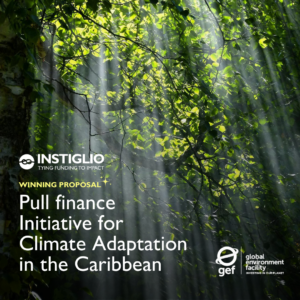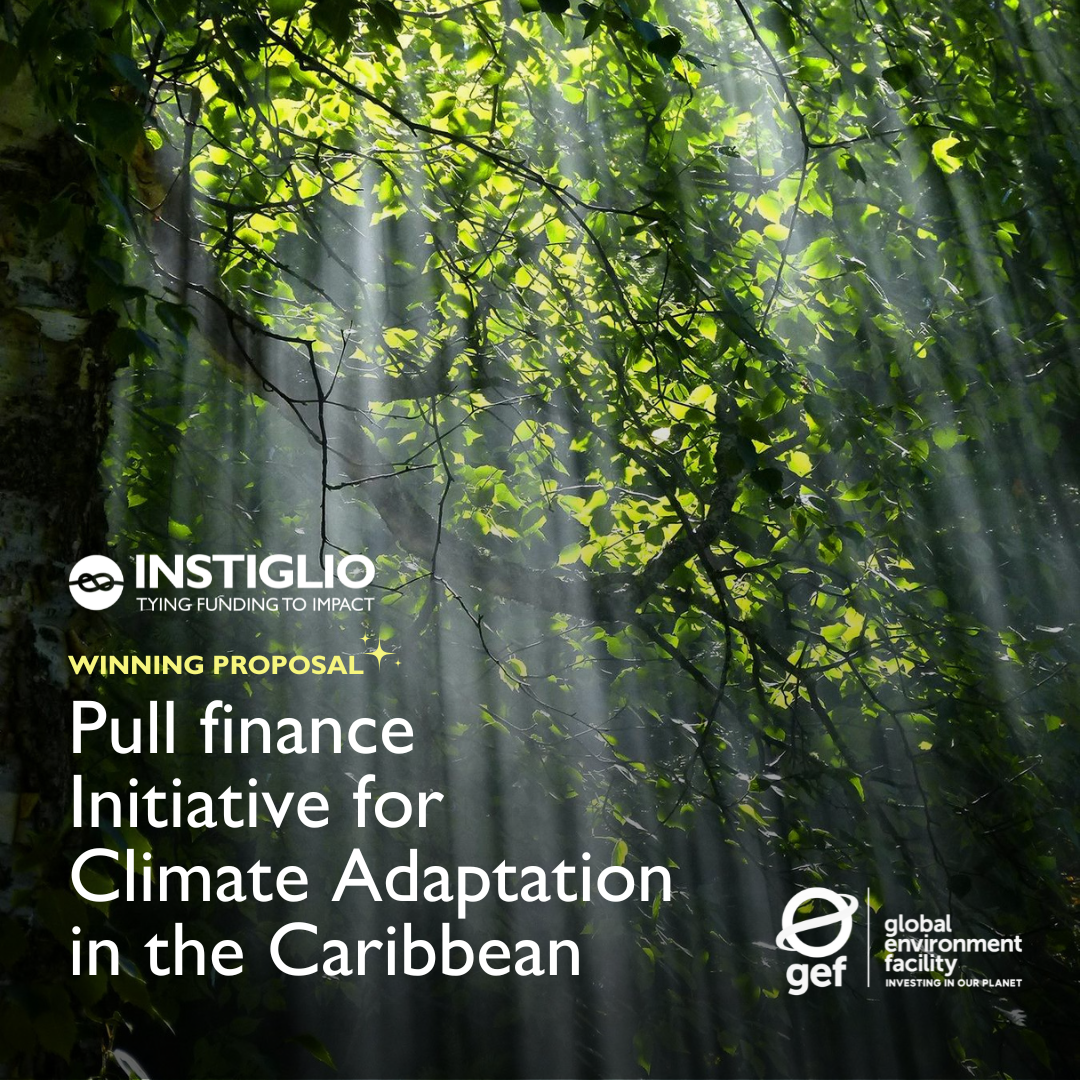GEF announces $20 million investment in climate adaptation innovators

As funding the climate challenge takes center stage at COP29 in Azerbaijan, the Global Environment Facility (GEF) has announced the latest winners of its Challenge Program for Adaptation Innovation, with $20 million in grants awarded to projects that will reimagine climate adaptation finance.
From initiatives to enhance the adaptive capacity of women entrepreneurs in the agricultural sector through financial inclusion, to scaling up traditional fire management techniques for resilient ecosystems services through carbon credit generation, crowdfunding climate-smart loans, developing a virtual green bank for adaptation, and kickstarting international markets for resilience-building bonds, the 13 award-winning projects all aim to test and scale up vital financial innovations.
The GEF-backed Challenge Program for Adaptation Innovation aims to pilot and de-risk new approaches to adaptation funding, leveraging donor funding to create the conditions for comprehensive private sector engagement in overcoming the shared challenges of climate change.
“Adapting to climate change is one of the defining challenges of our time, but it also offers an undeniable opportunity. By seeding these new approaches to climate adaptation funding, we are enabling the development of innovative technologies, while reducing risk and providing the conditions needed to open financial flows and enable new investors and sectors to take action,”
Carlos Manuel Rodríguez, GEF CEO and Chairperson said.
Selected from well over 100 proponents from around the globe, the latest tranche of winners will bring GEF investments in the Challenge Program to over $40 million across 32 projects in implementation or development, with an additional $40 million to be invested in the period to 2026.
The teams behind each of the winning proposals announced at COP29 will be invited to further develop and implement their concept in collaboration with one of GEF’s 18 agency partners.
Financing for the Challenge Program comes from the GEF’s two dedicated climate adaptation funds – the Least Developed Countries Fund (LDCF) and the Special Climate Change Fund (SCCF). The LDCF is the only multilateral climate fund designed to address the unique climate adaptation needs of Least Developed Countries; while the SCCF is focused on targeting the adaptation priorities of Small Island Developing States as well as catalyzing innovation, technology transfer, and private sector engagement. Together the two funds have provided approximately $2.5 billion in grant financing and mobilized an additional $14.3 billion from other sources, which is expected to reduce the vulnerability of 84 million people in 118 countries since their inception in 2001.
The Global Environment Facility (GEF) is a multilateral family of funds dedicated to confronting biodiversity loss, climate change, and pollution, and supporting land and ocean health. Its financing enables developing countries to address complex challenges and work towards international environmental goals. The partnership includes 186 member governments as well as civil society, Indigenous Peoples, women, and youth, with a focus on integration and inclusivity. Over the past three decades, the GEF has provided more than $25 billion in financing and mobilized $145 billion for country-driven priority projects. The family of funds includes the Global Environment Facility Trust Fund, Global Biodiversity Framework Fund (GBFF), Least Developed Countries Fund (LDCF), Special Climate Change Fund (SCCF), Nagoya Protocol Implementation Fund (NPIF), and Capacity-building Initiative for Transparency Trust Fund (CBIT).
About the Least Developed Countries Fund
The GEF-managed Least Developed Countries Fund (LDCF) is the only multilateral fund that focuses exclusively on the unique climate adaptation needs of Least Developed Countries. LDCF provides support in several priority areas for adaptation including agriculture, water, food, health, nature-based solutions, infrastructure, and climate information services. It builds institutional capacity for adaptation planning, scaling up finance, engaging the private sector, and adopting a whole-of-society approach for inclusive adaptation. The LDCF has financed 360 projects and programs with approximately $2.2 billion in grants, directly benefiting more than 74 million people and strengthening the management of more than 14 million hectares of land for climate resilience.
About the Special Climate Change Fund
The GEF-managed Special Climate Change Fund (SCCF) helps developing countries address the negative impacts of climate change through innovation, technology transfer, and private sector engagement. It also offers targeted support to Small Island Developing States, given their specific climate adaptation needs. The SCCF has provided $388 million in grants for 96 projects related to climate-resilient agriculture value chains, improved water management, integrated coastal management, climate risk insurance, nature-based solutions, and more, benefitting approximately 9.5 million people and helping to bring more than 5.3 million hectares of land under more sustainable management.
Quotes and details about winning project concepts:

Pull Finance Initiative for Climate Adaptation in the Caribbean
– Julia Loraque, julia.loraque@instiglio.org
– Ben Stephens, benjamin.stephens@instiglio.org
“The Pull Finance Initiative for Climate Adaptation represents a breakthrough moment for Caribbean resilience at a time when urgent action is critical. Our partnership with GEF will bring together donors and private sector partners to incentivize innovation in adaptation technologies specifically designed for Small Island Developing States. By leveraging the same financing approach that accelerated COVID-19 vaccine development, we aim to shape a new market that can match the speed and scale of today’s challenges. Just as pull finance proved effective for vaccines, we believe it can transform the climate adaptation landscape.”
Avnish Gungadurdoss, Co-founder and Managing Partner, Instiglio
The Caribbean is one of the most vulnerable regions to climate change, making private sector engagement essential to the development and market adoption of adaptation technologies suited to the region – ranging from agriculture to energy access. However, private investment and innovation in SIDS are hindered by insufficient incentives and market failures. These small markets face limited demand, and high prices due to the lack of scale in tailored production.
With proven success in pharmaceuticals, pull financing is a promising yet underutilized solution for tackling adaptation challenges. This approach ties payments to outcomes, incentivizing innovation and the deployment of technologies stifled by market dynamics, ultimately shaping markets for sustainable adoption.
For example, a SIDS energy network is vulnerable to extreme weather conditions, especially in remote and dispersed areas. Pull finance can incentivize producers to quickly design and take to market new energy storage solutions that are suitable and enduring to the specific context.
Instiglio, a non-profit with over 12 years of experience in results-based approaches is launching the Pull Finance Initiative for Climate Adaptation in the Caribbean. By collaborating with donors and the private sector, this innovative initiative will contribute to the evidence base on climate adaptation technologies in SIDS and pave the way for more effective climate finance.
